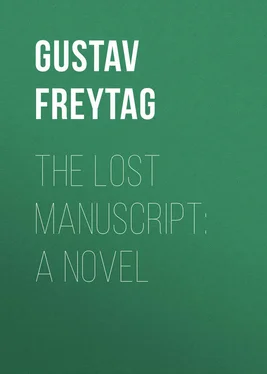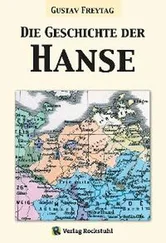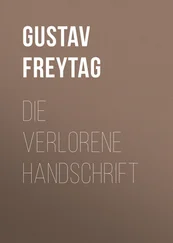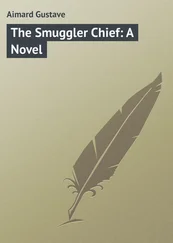Gustav Freytag - The Lost Manuscript - A Novel
Здесь есть возможность читать онлайн «Gustav Freytag - The Lost Manuscript - A Novel» — ознакомительный отрывок электронной книги совершенно бесплатно, а после прочтения отрывка купить полную версию. В некоторых случаях можно слушать аудио, скачать через торрент в формате fb2 и присутствует краткое содержание. Жанр: foreign_antique, foreign_prose, на английском языке. Описание произведения, (предисловие) а так же отзывы посетителей доступны на портале библиотеки ЛибКат.
- Название:The Lost Manuscript: A Novel
- Автор:
- Жанр:
- Год:неизвестен
- ISBN:нет данных
- Рейтинг книги:5 / 5. Голосов: 1
-
Избранное:Добавить в избранное
- Отзывы:
-
Ваша оценка:
- 100
- 1
- 2
- 3
- 4
- 5
The Lost Manuscript: A Novel: краткое содержание, описание и аннотация
Предлагаем к чтению аннотацию, описание, краткое содержание или предисловие (зависит от того, что написал сам автор книги «The Lost Manuscript: A Novel»). Если вы не нашли необходимую информацию о книге — напишите в комментариях, мы постараемся отыскать её.
The Lost Manuscript: A Novel — читать онлайн ознакомительный отрывок
Ниже представлен текст книги, разбитый по страницам. Система сохранения места последней прочитанной страницы, позволяет с удобством читать онлайн бесплатно книгу «The Lost Manuscript: A Novel», без необходимости каждый раз заново искать на чём Вы остановились. Поставьте закладку, и сможете в любой момент перейти на страницу, на которой закончили чтение.
Интервал:
Закладка:
"There is some truth in that," said the host thoughtfully.
"If the great fire does not burn," continued the Professor, "the single flames could not be spread. And, believe me, what most strengthens and elevates an honorable man of learning in the most difficult investigations, is the fact, confirmed by long experience, that his labors will in the end conduce to the benefit of mankind. They do not always help to invent new machines, nor discover new plants for cultivation, but they are nevertheless effective for all, when they teach what is true and untrue, beautiful and ugly, good and bad. In this sense they make millions freer, and therefore better."
"I see at least by your words," said the host, "that you hold your vocation in high esteem; and I like that, for it is the characteristic of an honest man."
This conversation produced a pleasant frame of mind in both men. The Inspector rose, and in a moment all the chairs of the farm dignitaries were pushed back, and the children and most of the party left the room. Only the host, Ilse, and the guests sat together for a few moments longer in pleasant conversation. Then they went into the next room, where coffee was prepared. Ilse poured it out, while the Proprietor from his seat scrutinized the unexpected guests.
The Professor set the empty cup down and began: "Our task here is ended, and we have to thank you for a hospitable reception. But I do not like to part without once more reminding you-"
"Why should you go?" interrupted the Proprietor. "You have had a long journey to-day; you will not find either in the town or in the neighboring villages any respectable lodging, and, in the pressure of the harvest, perhaps not even a conveyance. Pray be contented to pass the night here; we have, besides, to resume our conversation of this morning," he added, good-humoredly, "and I am anxious to come to a good understanding before we part. Will you accompany me for a while into the field, where my presence is required? When I ride to the distant part of the farm, Ilse will take my place. In the evening we will have a little sensible talk together."
The friends readily agreed to this proposal. The three men walked through the field engaged in genial conversation. The Professor was interested to see the large ears of a new variety of barley, which grew very densely, and the Proprietor spoke thoughtfully of this new species of corn. They stopped where the laborers were busy. Then the overseer handed his report to the Proprietor, after which they crossed the stubble to the sheaves. The Proprietor glanced quickly over the gathered shocks, the industrious people, and the patient horses in the harvest wagons; the friends observed with interest the intercourse between the master of the property and his subordinates and laborers; the short orders and pertinent answers; the zeal and cheerful aspect of the working-people when they announced the number of the sheaves, all well-behaved, industrious, and acting in unison. They returned with a feeling of respect for the man who ruled his little domain so firmly. On their way back they stopped to look at the foals that were gamboling about in a meadow behind the barns, and when the Doctor praised, above all, two galloping browns, it appeared that he had admired the best horses, and the Proprietor smiled upon him benignantly. At the entrance to the farmyard a groom brought a riding-horse, a powerful black, with strong limbs and broad chest: the Doctor stroked the horse's neck, and the Proprietor examined the straps. "I am a heavy rider," he said, "and need a strong animal." He swung himself heavily into the saddle, and, taking off his cap, said, "We meet again in the evening." And stately did horse and rider look, as they trotted along the road through the field.
"The young lady awaits you," said the groom; "I am to escort you to her."
"Have we made any progress or not?" asked the Doctor, laughing, and taking hold of his friend's arm.
"A struggle has begun," answered the friend seriously, "and who can say what will be the result?"
Ilse was sitting in an arbor of honeysuckle in the garden, surrounded by the children. It was a pleasant sight to see the young fair-haired family together. The girls sat by their sister; the boys ran around the arbor playing, with their afternoon luncheon in their hands. Seven fresh, well-formed faces, as like each other as blossoms on the same tree, yet each developing itself at a different period of life, from Franz, whose round child's head resembled a blooming bud, to the beautiful, full-blown face and figure that sat in the centre, brightly lighted up by the glancing rays of the sun. Again were the hearts of the friends thrilled by the appearance of the girl and the sound of her voice, as she tenderly scolded little Franz because he had knocked the bread and butter out of his brother's hands. Again did the children stare suspiciously at the strangers, but the Doctor ignored the ceremonial of first acquaintance by taking Franz by the legs and placing him on his shoulders, seating himself with his rider in the arbor. The little lad sat for a few moments on his elevation quite surprised, and the children laughed aloud at his round eyes looking so frightened at the stranger's head between his little legs. But the laughter of the others gave him courage, and he began to pummel lustily with his feet, and to brandish his bread triumphantly round the locks of the stranger. Thus the acquaintance was made; a few minutes later, the Doctor went with the children through the garden, allowing himself to be chased, and trying to catch the shouting crew between the flower-beds.
"If you like, we will go where you can obtain the best view of our house," said Ilse, to the Professor.
Surrounded by the children they walked along the road that led to the church. A winding footpath ran down to the bottom, where a strip of meadow bordered the bubbling brook. From this deep dell they ascended some hundred steps. Before them rose from the copse a huge rock; they passed round it and stood by a stone grotto. The rock formed the portal and walls of a cave which penetrated about ten paces into the hill. The ground was level, covered with white sand; bramble-bushes and wild roses hung down over the entrance; in the midst of them grew a large bush of willow-rose; it hung with its thick blossoms like a plume of red feathers over the rocky arch of the grotto. The trace of an old wall on the side showed that the cave had once been a refuge either for the oppressed or the lawless; at the entrance lay a stone, the upper surface of which had been smoothed for a seat; in the obscure light of the background stood a stone bench.
"There is our house," said Ilse, pointing over the valley to the height where the gables rose behind the fruit trees of the garden. "It is so near that a loud call would be heard here."
The friends looked from the twilight of the cave into the bright light of day, on the stone house and the trees which stood below it.
"All is quiet in the wood," continued Ilse; "even the voice of the birds has ceased; they have left their nests for the harvest fields, where they congregate in flocks."
"I hear a gentle murmur, like the gurgling of water," said the Professor.
"A stream runs over the stones below," explained Ilse. "Now it is scanty, but in the spring much water collects from the hills. Then the sound of the rushing water becomes loud, and the brook courses wildly over the stones; it covers the meadows below, fills the whole valley, and rises up to the copse-wood. But in warm weather this is a pleasant resting-place for us all. When my father bought the estate the cave was overgrown, the entrance choked up with stones and earth, and it was the abode of owls. He had it opened and cleared."
The Professor examined the cave with curiosity, and struck the red rock with his cane. Ilse standing apart watched him with troubled look. "Now he is beginning his search," she thought.
Читать дальшеИнтервал:
Закладка:
Похожие книги на «The Lost Manuscript: A Novel»
Представляем Вашему вниманию похожие книги на «The Lost Manuscript: A Novel» списком для выбора. Мы отобрали схожую по названию и смыслу литературу в надежде предоставить читателям больше вариантов отыскать новые, интересные, ещё непрочитанные произведения.
Обсуждение, отзывы о книге «The Lost Manuscript: A Novel» и просто собственные мнения читателей. Оставьте ваши комментарии, напишите, что Вы думаете о произведении, его смысле или главных героях. Укажите что конкретно понравилось, а что нет, и почему Вы так считаете.












